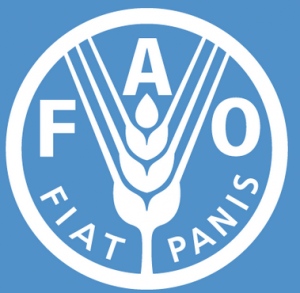Study finds huge production and yield gaps for fruits and vegetables in Ghana
 There is a huge production and yield gap in both fruits and vegetable in Ghana, according to the findings of a new study.
There is a huge production and yield gap in both fruits and vegetable in Ghana, according to the findings of a new study.
The study conducted in 2016 by Ghana Institute of Horticulturalists (GhIH), and the Food and Agriculture Organization (FAO), of the United Nations shows a huge production and yield gap in both fruits and vegetables in Ghana.
The study was conducted within the framework of the Global Fruit and Vegetables for Health Initiative (PROFAV), which was launched in 2003 in Geneva by the FAO and the World Health Organization (WHO), in recognition of the importance of fruit and vegetable consumption for health, and underlining the importance of improved production capacity of local small holder farmers, according to a report on FAO’s website.
Presenting the findings of the study to stakeholders, the Minister of Food and Agriculture Dr. Owusu Afriyie Akoto in an address read on his behalf noted that, the industrial potential of many fruits and vegetables available in Ghana is enormous hence the need to embark on a massive production of these fruits and vegetables not only for their high nutritive value but also for enhancing the establishment of many processing industries and creation of jobs, the report said.
“The fruit and vegetable sector is important for the vitality of the Ghanaian economy. Horticultural crop production provides new and profitable sources of income for farmers,” Dr. Afriyie Akoto was quoted as saying in the report.
“Reduced fruit and vegetable intake is linked to poor health and increased risk of non-communicable diseases (NCDs),” the FAO Representative to Ghana Dr. Abebe Haile was also cited as saying in the report.
“Low fruit and vegetable intake is among the top 10 selected risk factors for global mortality,” Dr. Abebe added.
It noted that the insufficient intake of fruit and vegetables is estimated to cause around 14 per cent of gastrointestinal cancer deaths, about eleven per cent of ischemic heart disease deaths and about nine per cent of stroke deaths.
The study, pointed out that the average population still does not consume the minimum daily requirement of 400g per day of fruit and vegetables necessary for good health. The general trend was that with advancing age, the consumption of fruits and vegetables increases.
However, children are at risk and should be provided with more fruit and vegetables for adequate nutritional status and to alleviate micronutrient deficiencies, it added.
Since 2003, the FAO and WHO have been leading the Global Initiative on the Promotion of Fruit and Vegetable for Health (PROFAV). The initiative aims to raise awareness and boost fruit and vegetable production and consumption for improving people’s health and farmer’s incomes, it further indicated.
The report added that the FAO-WHO PROFAV Initiative promotes a multi-disciplinary approach including agriculture, education and health sectors to work together to effectively promote production and consumption of fruits and vegetables.
By Pamela Ofori-Boateng
Copyright ©2017 by Creative Imaginations Publicity
All rights reserved. This news item or any portion thereof may not be reproduced or used in any manner whatsoever without the express written permission of the publisher except for the use of brief quotations in reviews.
